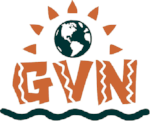Fair Trade Canada
Fairtrade Canada, formerly TransFair Canada, is an independent non-profit organization that licenses the use of the FAIRTRADE Mark on products in Canada in accordance with internationally agreed Fairtrade Standards. Fairtrade Canada is the Canadian member of Fairtrade International, which unites over 25 labelling initiatives across Europe, Japan, North America, Mexico and Australia/New Zealand as well as networks of producer organizations from Asia, Africa, Latin America and the Caribbean.
Fair Trade International
Fairtrade International (formerly Fairtrade Labeling Organizations International or 'FLO') is the international body made up of Fairtrade Canada and its partner organizations around the world. It is 50% owned by the farmers and workers it serves. Fairtrade International develops Fairtrade Standards for products, supporting farmers and workers, and operating global certification and auditing systems. The core requirements of Fairtrade Standards are social, economic and environmental justice and include no child labor and no forced labor.
Fairtrade certification and pricing were designed for commodity products such as coffee, using a model of standardized minimum pricing. Crafts and other products made by small-scale artisans are difficult to certify because they are unique, made of varied materials and have highly varied production processes and costs.
The Fairtrade system’s environmental standards and guidelines currently forbid the use of GM seeds by farmers, and encourage active monitoring in nearby fields. Because small farmers have difficulty preventing contamination from neighboring fields, Fairtrade products are not certified 100% GM free.
World Fair Trade Organization (WFTO)
The World Fair Trade Organization or WFTO, formerly the International Federation of Alternative Traders (IFAT), is WFTO is the home of fair traders: producers, marketers, exporters, importers, wholesalers and retailers that demonstrate 100% commitment to Fair Trade and apply the 10 WFTO Principles of Fair Trade to their supply chain. The works and achievements of its members make WFTO a global authority on Fair Trade and a guardian of Fair Trade values and principles.
WFTO’s route to equity in trade is through the integrated supply chain. Practices used across the supply chain are checked against the WFTO Fair Trade Standard, a set of compliance criteria based on the 10 Fair Trade Principles and on International Labour Organisation (ILO) conventions.
Fair Trade USA
In 2011 Fair Trade USA (formerly Transfair USA) withdrew from Fairtrade International and the WFTO to include plantations and factories. The WFTO states that “formal employment is covered by local country laws and ILO conventions, and it should be those instruments that Fair Trade USA should turn to for improvements rather than widening the scope and watering down the principles of Fair Trade. … It is not unthinkable under this scenario to have a multinational operation own the entire supply chain and be able to label it as Fair Trade. This is completely unacceptable to the WFTO.”
Fair Trade Federation
The Fair Trade Federation and the World Fair Trade Organization recognize and uphold each other’s principles, and work together as allied organizations to promote greater equity in international trade. The FTF is a proud member of the WFTO.
The Fair Trade Federation is the trade association that strengthens and promotes North American organizations fully committed to fair trade. The Federation is part of the global fair trade movement, building equitable and sustainable trading partnerships and creating opportunities to alleviate poverty. The Fair Trade Federation is a community of members committed to 360° fair trade. 360° means we work with small farmers and artisans in partnerships built on trust. It means good wages, safe working conditions, environmental responsibility, and more. It means our partners are empowered to build strong businesses for their families today – and for generations to come. For example:
- Fair Trade Federation members offer advance payment to artisans and farmers, allowing them to purchase raw materials without taking out high interest loans. This simple practice opens up a world of opportunity for producers who may not otherwise be able to fulfill large orders.
- Fair Trade Federation members form long term relationships with artisans and farmers. If a product doesn’t sell, fair trade buyers won’t simply move onto another supplier. Instead, they work with the same producers to develop new products using their existing skills. This means that artisans and farmers can rely on steady, long term income that helps improve their quality of life.
- Fair Trade Federation members are committed to the people behind their products. If problems arise, fair trade buyers are actively involved in finding a fair and honest solution. An unexpected production delay or quality issue won’t cause artisans and farmers to lose work; instead, fair trade buyers work with them to solve these problems.
- Fair Trade Federation members set realistic timelines and plan their product lines well in advance. Long production times create healthy work environments and reduce the pressure, stress, and overtime that is often imposed on workers in developing countries.
FairWorld Project
Fair World Project (FWP) is an independent campaign of the Organic Consumers Association which seeks to protect the use of the term “fair trade” in the marketplace, expand markets for authentic fair trade, educate consumers about key issues in trade and agriculture, advocate for policies leading to a just economy, and facilitate collaborative relationships to create true system change. See their free magazines in our store
Canadian Coalition for International Co-operation
Canadian Coalition for International Co-operation (CCIC) is a coalition of Canadian voluntary sector organizations working globally to achieve sustainable human development. CCIC seeks to end global poverty, and to promote social justice and human dignity for all.
British Columbia Coalition for International Co-operation
British Columbia Coalition for International Co-operation (BCCIC) engages its members and others to share knowledge, build relationships, and develop their capacity towards achieving sustainable global development.
Global Village Nanaimo is a member of BCCIC.
